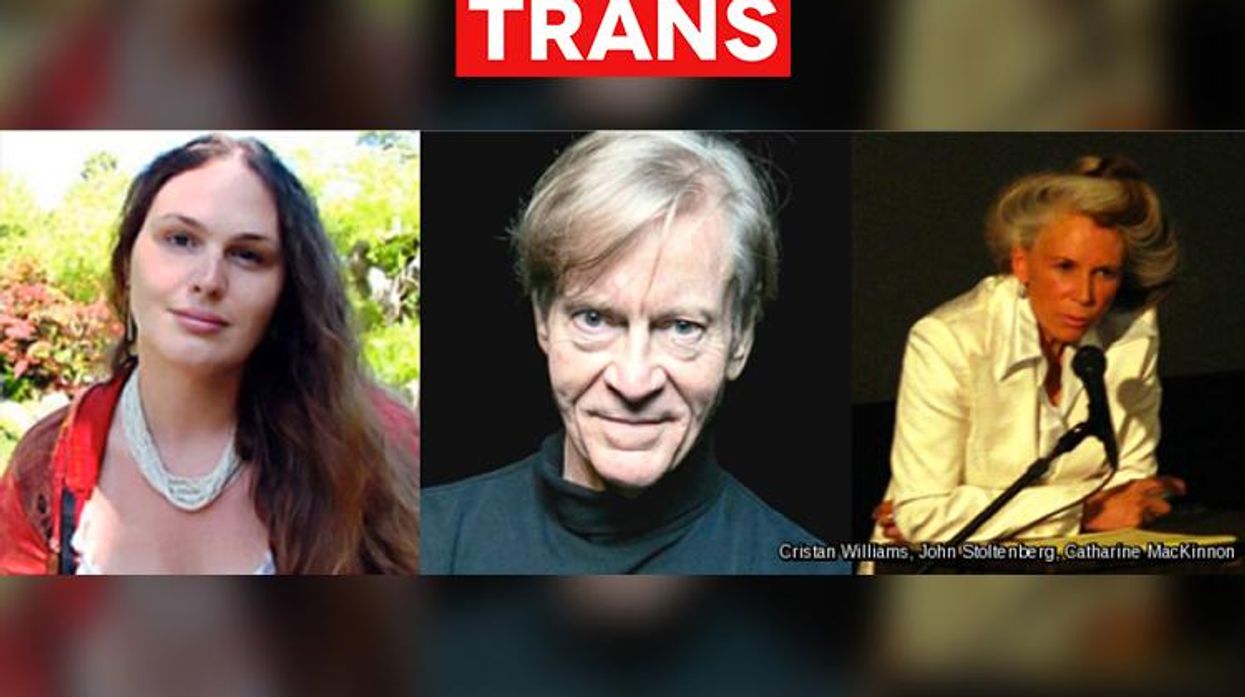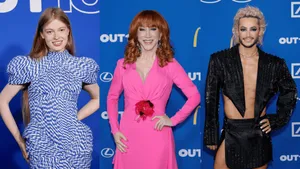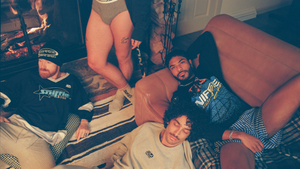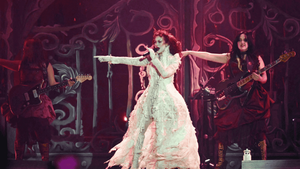A fresh wave of compassionate, insightful feminist discussion debuted January 1 with the launch of the Conversations Project, housed on a special section of trans author Cristan Williams's TransAdvocate blog.
The groundbreaking online history venture, found at Radfem.TransAdvocate.com, unearths extensive proof that radical feminism has always welcomed transgender people. By doing so, it flies in the face of a contemporary narrative pushed by a few particularly outspoken self-proclaimed radical feminists who argue that transgender women are not women and are in fact dangerous to the broader feminist cause.
"I discovered all of this rich history that is absolutely beautiful and absolutely courageous that I had no clue about and had not seen recorded in a book or online anywhere," Williams tells The Advocate. "It was an absolute shame that these voices had been forgotten or buried. Reclaiming those narratives, those histories, is very, very important."
The Conversations Project includes extensive interviews with pioneering feminists, radical feminists, gender theorists, or human rights advocates like Catharine A. MacKinnon, John Stoltenberg, Judith Butler, Frances "Poppy" Northcutt, and Janice Walworth.
Supported by the Houston Transgender Archives and an array of partners including the Texas Chapter of the National Organization for Women and the Transgender Foundation of America, the project emphasizes on reasoned discussion informed by historical evidence, as highlighted in its name. These conversations are furthered in the project's community group, its quarterly journal, and its voluminous resources.
Those resources include a helpful glossary, suggested readings, a historical timeline, and detailed guidelines for how to integrate the project's findings into the curriculum of academic programs. The venture will also include a book-length collection of collaborative essays. Already appearing in installments on the project's website, these essays are authored by Stoltenberg and the project's founder and principal researcher, Cristan Williams, a trans historian who is the editor in chief of TransAdvocate.com.
Williams explains that the word "radical" in "radical feminism" means "going to the root" of the problem of oppression against women and LGBT people. That root, emphasizes Williams, is a political system that still frequently denies equal rights, opportunities, and advancement to people by discriminating on the basis of sex, gender, and sexual orientation.
Williams observes that the ideas of anti-trans radical feminism often sound similar to conservative attacks on transgender people. As people of all marginalized cultures and economic experiences struggle for equality, advancement, and opportunity regardless of identity, there is a solidarity among all resistant individuals.
K.J. Rawson, a trans assistant professor in the English department at the College of the Holy Cross and the director of the Digital Transgender Archive, an online database for digitized trans-related historical materials, praises the Conservations Project. Rawson maintains that anti-trans radical feminism "has been overstated as a source of tension and overrepresented as a historical phenomenon."
The Specter of Anti-Trans Attacks
"It has saddened me to witness what I know to be an inclusive and intersectional framework for liberation become tarnished by narratives focused on a minority of anti-trans people whose ideas have been represented in the media as being radical feminism," says the veteran lesbian activist and comedian Robin Tyler in a statement to The Advocate announcing the project's launch.
The project's in-depth interviews with trans-affirming radical feminists in particular make abundantly clear that activists like Janice Raymond, Sheila Jeffreys, Germaine Greer, and Bev Jo Von Dohre have never wholly represented radical feminism. This vocal "minority of anti-trans people" -- as Tyler calls them -- has not just spread virulent misinformation about trans people. A few have even advocated violence.
In a 2014 commentary for The Advocate, Roz Kaveney, a British trans activist and poet, drew attention to a particularly heinous verbal attack when, referring to trans people, Dohre said, "They expect we'll be shocked to see statistics about them being killed, and don't realize some of us wish they would all be dead."
Nor are such attacks uncommon. In October of last year, The Advocate reported Greer's vitriolic reaction to the news that Caitlyn Jenner would be named one of Glamour magazine's Women of the Year. Greer has said, "Just because you lop off your dick and then wear a dress doesn't make you a fucking woman. I've asked my doctor to give me long ears and liver spots and I'm going to wear a brown coat but that won't turn me into a fucking cocker spaniel." While critiques of Jenner's well-documented gaffes may be warranted, transphobia against Jenner is not, and Greer's pernicious ad hominem attacks reveal a particularly unhinged rabidity among anti-trans feminists.
Not to be outdone, Sheila Jeffreys and Janice Raymond have promulgated a litany of treacherous distortions about trans people that make up a now-familiar "greatest hits" of virulence in decades of books, articles, and speeches. Among the most offensive is Raymond's suggestion in her 1979 book, The Transsexual Empire, that medically necessary trans health care constitutes "rape."
In 2014, when Jeffreys was interviewed on Sunday Night Safran, an Australian radio program, she classified trans women as either "homosexual men who don't feel they can be homosexual in the bodies of men" or "heterosexual men who have a sexual interest in wearing women's clothes and having the appearance of women."
Along with believing that trans women are not "real" women, this vocal minority has advanced the notion that the parents of trans teens, like the best-selling author and reality TV star Jazz Jennings, are committing child abuse if they encourage their trans children to transition. This subset of radical feminism has also erroneously labeled lesbian or bisexual trans women as predators bent on infiltrating women's spaces to assault "real" women. The radical feminists and trans activists participating in the Conversations Project disarm these hateful attacks.
Reclaiming Trans-Affirming Roots
"Andrea's views were trans-inclusive when I first met her in 1974," Stoltenberg clarifies in the first online installment of the project's essays. A cisgender gay man who was the life partner for 31 years of the founding radical feminist, Andrea Dworkin, Stoltenberg is the author of a now-classic 1989 feminist book, Refusing to Be a Man, and one of the founders of a groundbreaking organization in the nation's capital called Men Can Stop Rape.
"She had said so in her first book from 1974, Woman Hating, where she wrote, in part, 'Every transsexual has the right to survival on his/her own terms.' In the 31 years we were together those views did not change; she never retracted them. Nor for her was there ever any contradiction between being trans-inclusive and her fierce and eloquent radical feminist commitment to end male supremacy and the sexual violence done to maintain it," Stoltenberg explains in the essay.
Stoltenberg tells The Advocate that he "stumbled into" the "dispute between some radical feminists and some trans activists ... when I posted an article about Chelsea Manning ... and I tweeted about her using the pronoun 'she' and I got all this blowback and I became the target for a lot of ad hominem invective."
On the attacks that he experienced by some radical feminists, he explains, "I've thought of myself as a radical feminist. I've shared principles and ideas with other radical feminists on a lot of issues and suddenly I found myself outside of the fold on the question of trans-inclusivity and I found just a kind of awful dimension of animosity. It was just kind of horrifying to me." He then decided to share the trans-inclusive views that he "always knew" that Dworkin maintained, views that are what he called "oppositional" to anti-trans radical feminism.
Pivotal to Stoltenberg's trans-affirmative investigation into the ideas of his life partner is his highlighting of Dworkin's view that "she did not believe there is a sex binary in the human species." In Woman Hating, Dworkin states that "'man' and 'woman' are fictions, caricatures, cultural constructs. As models they are reductive, totalitarian, inappropriate to human becoming. As roles they are static, demeaning to the female, dead-ended for male and female both."
In effect, Stoltenberg explains in his online essay that Dworkin believed that "there is no essential division of humans (or material or ontological or biological or however you want to say it) into two discrete, fixed, and absolute categories of so-called sex." Furthermore, he points out Dworkin's belief that the political system that oppresses women and LGBT people is, as Dworkin said in a speech, "absolutely real."
But, as Dworkin maintained, the thinking behind the system is a fiction, or, as she put it in the speech, the "model itself is not true. We are living imprisoned inside a pernicious delusion, a delusion on which all reality as we know it is predicated." Consequently, changing our thinking becomes paramount for Stoltenberg.
To advance a change in thinking, Stoltenberg in his essay offers a fresh metaphor of the "color spectrum wheel" to understand one's sense of masculinities and femininities. "Think of a color wheel," he says, "And don't think of one with colors segmented by lines like a pinwheel; think of one where the colors blend and blur into one another as they do in the infinitely circular rainbow that is the visible spectrum.

Supportive, Intersectional Exchanges
"The diversity of participants, I believe, is one of the greatest strengths of the project," says Margo Schulter, a trans activist, feminist, scholar, and composer. "Cristan Williams has taken a great interest in inclusive second-wave radical feminism, and courageous women like Robin Tyler who sometimes faced the threat or even reality of physical violence in order to support the inclusion of transsexual lesbian feminists like Beth Elliott. John Stoltenberg ... plays a vital role in this process as a sustainer of [Dworkin's] legacy of challenging the sex and gender binaries alike. And we have a wonderful, intergenerational mix of people to share different perspectives, insights, and viewpoints."
Schulter co-authored an article on lesbian feminist identity in male-to-female transsexuals that was published in the Journal of Homosexuality in 1976. Her statements to The Advocate highlight the benefit of the Conversations Project's embrace of diverse trans-affirming views from people of many cultures, races, ethnicities, genders, sexes, and sexualities. Williams calls this diverse inclusion "intersectional."
The project includes healthy and respectful intellectual exchanges that are the antithesis of the vitriol of some anti-trans radical feminists. While participants express their ideas in different ways, they do so supportively. In Stoltenberg's view, sex and gender commingle, and both terms represent "social constructions," or ideas that people create to characterize ourselves. But other participants in the project like Cary Gabriel Costello articulate these ideas in a slightly different manner. Costello is an intersex and trans associate professor of sociology at the University of Wisconsin-Milwaukee and the director of the university's LGBT+ Studies Program. Costello also directs an intersex advocacy organization called the Intersex Roadshow.
"One of the things I study in my own research is the troubled alliance of trans and intersex advocates," Costello tells The Advocate. "In the simplest of terms, the tensions between the two groups arise from the way the two imagine the central problems they face and the solutions to those problems. For intersex people, the central problem is forced medical interventions into sex-variant bodies, while for trans people it is respect for gender identity and access to desired medical transition services. But the two groups are united in their opposition to the policing of binary sex/gender ideology."
Costello explains, "The way that this is related to radical feminism is that radical feminism calls for the abolishing of binary sex/gender ideology. A radical feminism that embraces intersex people embraces the fact that bodily sex characteristics each exist on a spectrum and that intersex status is not a 'disorder' but part of the wonderful diversity of physical embodiment. A radical feminism that embraces trans people sees gender identities as varying widely, and all as deserving of equal respect."





































































Charlie Kirk DID say stoning gay people was the 'perfect law' — and these other heinous quotes